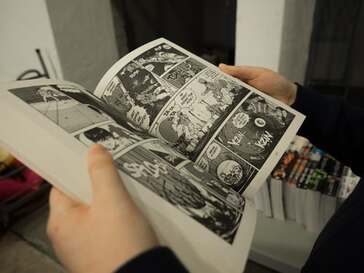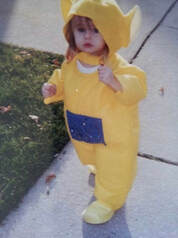|
by Emily Langford  Photo by Sincerely Media on Unsplash Photo by Sincerely Media on Unsplash As a queer, “elder millennial” who watched as personal computers suddenly took root in our homes, I experienced the rise of online fandom firsthand. Prior to the internet, my experience with fandom was a solo one, I didn’t know anyone who had the same obsessive passion for stories and characters like I had. I was the annoying kid who would, unprompted, spew out tidbits and theories about books and movies, the weirdo who was off in her own little world where all her characters existed at my day-dreamy little whims. I was tolerated at best and I eventually learned to keep my fervor to myself. I remember the first time I entered the titles of my favorite obsessions into the search bar. Suddenly, I was very much not alone. Each of my hyperfixations had a dedicated chat room or message board with other people who understood, who shared my passions. I finally found a place of acceptance.
1 Comment
by Lesley George  Photo by Shelby Miller on Unsplash Photo by Shelby Miller on Unsplash I’ll admit—I have spent hours skimming through fanfiction, picking the perfect tag to fit into the hyper-specific story I wanted to read: friends to lovers, fluff, slice of life, alternate universe (AU). There is something euphoric about being able to find a story so acutely tailored to my tastes; the only thing that could ruin the experience for me would be a misuse of a story tag [“Please use story tags correctly!” I cried]. Tropes and tags are a staple within the fandom realm and exist to satisfy the fans desire for curated content, made by other fans, involving their favorite characters. But can these markers exist outside fandom culture?  Via Pixabay Via Pixabay by Megan Kiger So, I’d call myself a liar. Used-to-be outstanding liar, but maybe just above average now. My intentions are never anything more than comedic (or dramatic) relief. We all love drama, and we all lie about that too. When I was little, I’d come up with intricate stories to cover my ass when I was in trouble or embarrassed (or just to make things interesting, you know?). I had a crush on a boy named Zach when I was ten. He had this ashy kind of blond hair and green eyes that I was obsessed with. I asked him if he wanted to swing with me at recess and he said no. He actually pretty rudely refused and laughed at me with his friends. I remember my throat swelling while I tried to keep the hysterics contained to my stomach.  by Christopher M. Comparri The appeal of books, movies, television and any sort of story-telling platform can be boiled down to two key components: having a great story and having great characters to fill out said story. As viewers and readers, we often find ourselves rooting for certain characters and despising others to the pits of our very soul. This can be for any number of reasons: rooting for the underdog, finding a character that is relatable, finding one that embodies the essence of what we feel is right or wrong with the world. Finding the handful of characters that you feel strongly about builds an emotional tie between the content produced and the individual consuming it. However, the trend of incorporating huge casts of characters into stories is now having an adverse effect. People are finding too many characters to like or hate in passing. These characters are being masked as huge markers in a story, but the reality is quite different. In literature, sometimes less is more.  by Rachel Barton While I was growing up, my mother made all of my Halloween costumes. Since she was a seamstress, she took this opportunity to go all out and produce works of art. For my first Halloween, I was a tiny bride with a complicated wedding dress. Throughout the years, I dressed as a Teletubby with a light up belly, Tom and Jerry in one costume, and a princess turned ninja. Each year, my mom would ask me what I wanted to be. When I was nine, I stumped her. |
Archives
July 2024
Categories
All
|
|
Glassworks is a publication of Rowan University's Master of Arts in Writing 260 Victoria Street • Glassboro, New Jersey 08028 [email protected] |
All Content on this Site (c) 2024 Glassworks
|

 RSS Feed
RSS Feed
